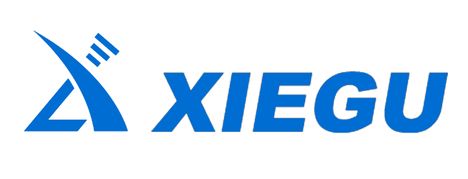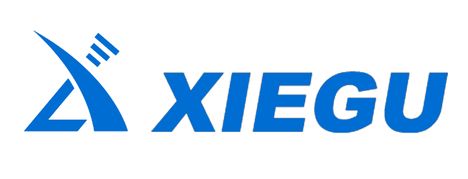
Send Inquiry
How to Get Your Ham Radio License
Growing numbers of individuals are entering the world of ham radio by obtaining their first ham radio license. The allure of amateur radio becomes clear when you delve into its capabilities. The substantial power and expansive bandwidth accessible to amateur radio enthusiasts offer a gateway to a fulfilling lifelong hobby. Moreover, they enjoy substantial benefits over those who operate CB radios.
Obtaining the Technician license can be a straightforward process if you're familiar with the steps involved. Here's a rundown of key details you should grasp before stepping on your licensing journey.
Why Do People Want to Aquire a Ham Radio License?
Power Amplification
In contrast to the unlicensed Citizen's Band radios that are limited to a mere 4 watts with an effective range of approximately seven miles, ham radio operators are authorized to wield up to 100 watts of power. This significant power differential highlights the advantage that ham radio operators possess.
Amplified Range
Although power does play a role in extending range, the relationship is not fixed. While ham operators benefit from a power advantage of 25 times that of CB operators, their range surpasses this 25-fold increase. The behavior of radio waves through the atmosphere allows ham operators to achieve notably greater communication distances.
Effective Communication
Effective communication lies at the heart of this pursuit. On the move, the ability to establish contact with individuals over hundreds of miles offers a distinctive edge over the limited range of CB radios. Notably, with base stations, it's possible to remain connected with your home while traveling or engage in conversations with friends from the comfort of your residence, even if they reside in another country. Fascinatingly, ham radio operators even operate their own communications satellites. Licensed operators can even learn how to engage in worldwide satellite-based conversations if they desire.
Furthermore, there are additional compelling aspects to explore when considering a ham radio license:
Emergency Preparedness
During times of disasters, communication often becomes a critical challenge. Natural calamities like tornadoes, earthquakes, and floods can render traditional communication infrastructure useless. Even if cell service remains operational, the sheer volume of users in a disaster area can overwhelm the system. In such circumstances, ham operators step up, utilizing handheld battery-powered radios to provide vital emergency communication when all else fails. Regardless of how remote, congested, or chaotic the disaster zone is, amateur radios manage to establish essential lines of communication.
Joy of Engagement
Regular competitions within the ham radio community keep license holders engaged and foster new connections worldwide. These events not only sharpen skills but also foster global friendships.
What are the Three Ham Radio Licenses?
The landscape of Ham radio licenses has evolved over time, with the FCC introducing changes that aim to expand capabilities and eliminate constraints for license holders. These shifts are expected to continue, reflecting the dynamic nature of the field.
1. Technician License:
For most newcomers to the world of ham radio, the Technician license serves as the entry point. This license offers access to amateur Very High Frequency (VHF) and Ultra High Frequency (UHF) radio bands, along with partial access to the High-Frequency (HF) bands. While Morse Code proficiency used to be a requirement, it's no longer part of the license test. This means that the decision to learn and use Morse Code is left to the individual. Technicians can also employ a portion of the 10-meter band for voice and digital communications.
2. General License:
General license holders enjoy all the privileges of the VHF and UHF bands, plus expanded HF privileges for voice communication. If you have a keen interest in global communication, pursuing a General license is a logical step after becoming familiar with your capabilities under the Technician license.
3. Extra License (Amateur Extra):
Positioned at the pinnacle, the Extra license provides comprehensive access to all amateur frequency bands. Holders of the Extra license enjoy the broadest spectrum of privileges within the ham radio domain.
The Path to Ham Radio Licensing:

While it's clear that examinations are part of the licensing process, understanding how to prepare for these tests and where to find resources is crucial. One valuable resource is the American Radio Relay League (ARRL), which can be accessed at arrl.org. The ARRL not only serves as a wealth of information but also plays a pivotal role in assisting aspiring ham operators.
Intriguingly, the presence of ARRL members extends far beyond just the organization's official website. ARRL boasts a vast network of amateur radio clubs across the nation, as well as individual members scattered throughout various locales. Interestingly, the most remote and secluded areas often exhibit a heightened interest in shortwave radio due to limited broadband or cellular access.
Functioning as a Volunteer Examiner Coordinator (VEC) for the FCC, the ARRL serves as a hub for facilitating licensing examinations. Whether you're seeking study materials, tailored study classes, or the actual administration of the test, your nearest ARRL-affiliated club is likely to offer these services in a seamless manner. This approach aims to streamline the licensing process and make it as accessible as possible for enthusiasts.
Things You Need to Know Before Getting the Ham Radio License
Gearing up to obtain your ham radio license involves more than just passing an exam – it requires a comprehensive understanding of the various facets of amateur radio operations. As you embark on this journey, here are key insights that will equip you for success:
1. Licensing Tiers and Prerequisites:
You're already acquainted with the three levels of ham radio licenses and the corresponding written exams. The Technician license exam, comprising 35 questions, serves as your initial step. Remember, holding a valid Technician license is a prerequisite for advancing to General or Extra class licenses. These FCC exams are conducted in person, necessitating potential travel. Once you pass, ARRL members overseeing the test will evaluate your results and forward them to the FCC, culminating in the arrival of your new license and call sign by mail. License durations span a decade and can be renewed with a simple form submission. Many operators hold call signs received several decades ago, showcasing their historical significance.
2. Exam Complexity:
Expect varying difficulty levels for the different license exams. The Technician Class test, tailored for those familiar with amateur radio, requires minimal study for most individuals. In contrast, the General and Extra tests delve into more advanced radio theory and operating principles, demanding a more thorough study approach.
3. Grasping Radio Theory:
A significant portion of the Technician test centers around radio theory. Understanding concepts like wavelength, frequency, modulation, propagation, and antenna functionality is vital. The ARRL offers comprehensive study materials, including license manuals and study guides tailored to each exam level. This knowledge ensures your safe operation of radio equipment.
4. Radio Regulations and Etiquette:
Entry-level tests emphasize learning radio regulations and etiquette aligned with the privileges of the Technician class license. These norms differ across countries, with the FCC governing radio regulations in the US. Adhering to these regulations fosters responsible and valued participation within the amateur radio community.
5. Operating Modes and Bands:
While not imperative to master all communication modes initially, you should familiarize yourself with different methods ham operators use, such as CW (Morse Code), digital communications, FM voice, and television. Understanding the appropriate frequencies for each mode at your license level is crucial to avoid violations and maintain a positive rapport within the ham radio community.
6. Equipment Considerations:
Though radio hardware isn't examined directly, it's a pivotal aspect. Gathering equipment advice from ARRL-affiliated members can be immensely beneficial. You needn't spend extravagantly to start; used equipment can be a cost-effective option. Integrating theoretical knowledge with practical setup, addressing cabling, grounding, and more, can be supported by ARRL members.
7. Emergency Communication:
Amateur radio operators play a crucial role in emergency communication. Even if you believe limitations might hinder active involvement, your setup can provide vital assistance during crises. Learning about equipment for emergency situations and potential roles you can fulfill contributes significantly.
8. Local Clubs and Organizations:
Leveraging the vast network of over 160,000 ARRL members can greatly enhance your journey. Joining local amateur radio clubs provides access to classes, exam sessions, on-air activities, and mentorship. This support system offers a wealth of experience, knowledge, and public service spirit.
By understanding these insights and collaborating with your local ARRL, you'll lay a strong foundation for becoming a well-informed, responsible, and valued ham radio operator. This journey promises not only a license but also lifelong friendships and opportunities within the thriving amateur radio community.
